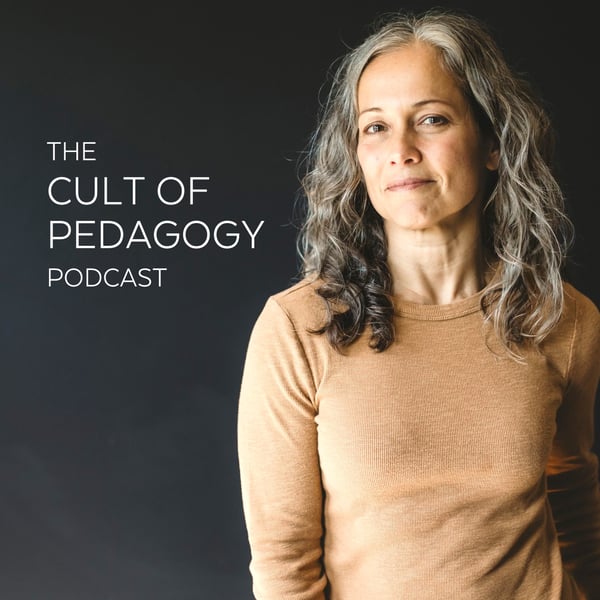62: 21st Century Learning at the Apollo School
The Cult of Pedagogy Podcast
Jennifer Gonzalez
4.8 • 2.4K Ratings
🗓️ 12 February 2017
⏱️ 57 minutes
🧾️ Download transcript
Summary
Many of us like the idea of personalized learning, but we don't have many models for making it happen. In this episode, I interview the founders of the Apollo School, a project-based, personalized program built inside a public school that offers a hybrid of English, social studies, and art in one block of time. You'll definitely want to see how they make it work and possibly do the same thing at your school. Thanks to Wes Ward, Greg Wimmer, and Jim Grandi for sharing their experiences with me!
Transcript
Click on a timestamp to play from that location
| 0:00.0 | This is Jennifer Gonzalez welcoming you to episode 62 of the Cult of Pedagogy podcast. |
| 0:05.9 | In this episode we're going to talk to three teachers who have created an incredible model |
| 0:10.8 | for cross-curricular student-directed learning. They call it the Apollo School. |
| 0:16.1 | I feel like we've reached a point where most teachers embrace the idea of student-directed learning, |
| 0:34.1 | the philosophy of being the guide on the side rather than the stage on the stage. We can also |
| 0:40.1 | appreciate the value of cross-curricular studies, blending math and science, for example, |
| 0:45.9 | or integrating arts and music into history class. So why are so many teachers still basically |
| 0:52.2 | using the old model where we plan and deliver the lessons and separate subjects in lock step using |
| 0:57.5 | the same traditional schedule as always? Two reasons I think. One, because it works more or less. |
| 1:05.4 | We move students through the system, they learn some stuff, pass tests, and graduate with an |
| 1:10.3 | acceptable repertoire of knowledge and skills. Acceptable. Enough to function, to continue on to |
| 1:16.7 | college and survive more or less. Except that lately more and more voices are telling us that this |
| 1:25.6 | repertoire of knowledge and skills isn't quite cutting it. They aren't quite as adept at problem |
| 1:32.0 | solving and collaboration and inquiry as they need to be for the 21st century. The other reason |
| 1:38.9 | we stick to the traditional framework is the one I believe is more powerful. It's because we don't |
| 1:44.4 | know how to change. We have no template for what school could look like if we restructured it |
| 1:51.0 | to reflect priorities like cross-curricular connections, student self-efficacy, and inquiry-based |
| 1:56.6 | learning. Well, I have a template for you today. The Apollo School is a program that operates |
| 2:05.8 | inside a regular public school, Central York High School in York, Pennsylvania, which just happens |
| 2:12.3 | to be right down the street from where I did my student teaching in 1993. Apollo was a block of |
| 2:18.8 | three classes. English, social studies, and art all blended together and co-taught by three teachers, |
| 2:24.4 | one from each subject area. Students arrive in the morning and set their own goals for the day |
... |
Please login to see the full transcript.
Disclaimer: The podcast and artwork embedded on this page are from Jennifer Gonzalez, and are the property of its owner and not affiliated with or endorsed by Tapesearch.
Generated transcripts are the property of Jennifer Gonzalez and are distributed freely under the Fair Use doctrine. Transcripts generated by Tapesearch are not guaranteed to be accurate.
Copyright © Tapesearch 2025.

